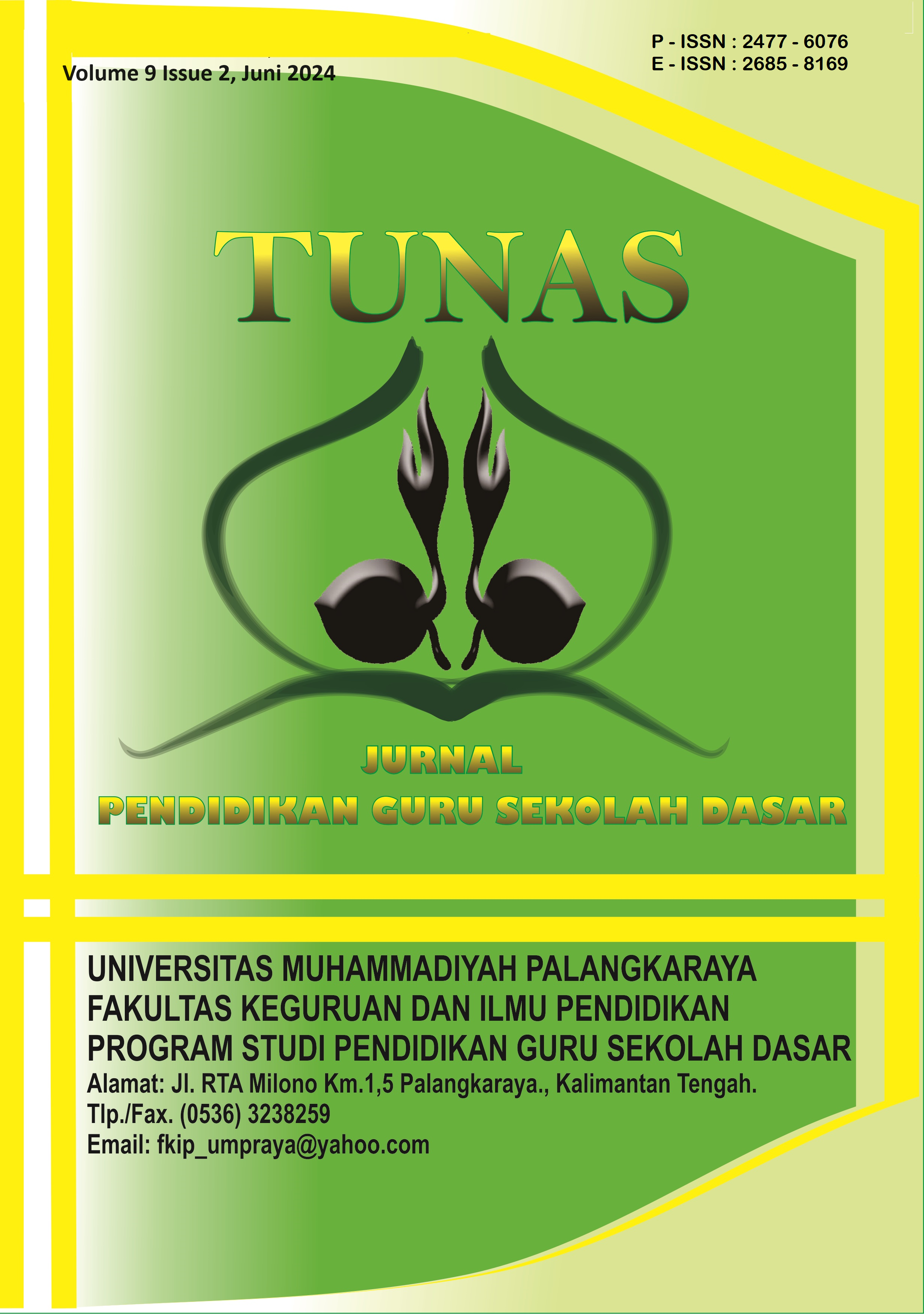Cultivating Social Attitudes Through Social Studies Learning In Elementary Schools
Main Article Content
Abstract
Social studies learning is very necessary to shape the social attitudes of the younger generation. The younger generation acts as the pillar and spearhead of the nation's future, so that students must have good social attitudes in society and as a state. Social studies learning has a very important role in creating social attitudes in each student. The role of social studies learning, apart from developing aspects of students' knowledge, understanding and analytical skills regarding the social conditions of society, social studies learning is also predicted to play an active role in forming students' social attitudes. This research method uses literature review studies such as journals, articles, books and other sources related to social studies learning, instilling social attitudes in students, as well as the role of teachers in instilling social attitudes in each student. The results of this research reveal that the process of forming social attitudes, especially in the context of social studies learning, is an important aspect that must be carried out by teachers in the classroom in educating students. Activities to instill social attitudes through social studies learning can be instilled through social studies learning. Social studies learning can be implemented by incorporating social attitude values into students through strategies or learning systems that involve imitation elements or concrete model rolls through the habituation of other social attitudes such as honesty, discipline, responsibility, tolerance, mutual cooperation, politeness or politeness. , and confident. Social attitudes will be embedded and reflected in daily activities as seen from the learning process implemented by the teacher in social studies learning in the classroom.
Downloads
Article Details

This work is licensed under a Creative Commons Attribution-ShareAlike 4.0 International License.
Authors who publish with this journal agree to the following terms:
- Any article on the copyright is retained by the author(s).
- The author grants the journal, right of first publication with the work simultaneously licensed under a Creative Commons Attribution License that allows others to share work with an acknowledgment of the work authors and initial publications in this journal.
- Authors are able to enter into separate, additional contractual arrangements for the non-exclusive distribution of published articles of work (eg, post-institutional repository) or publish it in a book, with acknowledgment of its initial publication in this journal.
- Authors are permitted and encouraged to post their work online (e.g., in institutional repositories or on their websites) prior to and during the submission process, as can lead to productive exchanges, as well as earlier and greater citation of published work.
- The article and any associated published material is distributed under the Creative Commons Attribution-ShareAlike 4.0 International License
References
Herman, H., Rusmaniah, R., Munandar, H., & Rozikin, A. Z. (2023). Utilization of the Surrounding Environment as a Source of Learning Forum for Social Sciences. The Innovation of Social Studies Journal, 5(1), 18-24.
Analisis Materi IPS Kelas Rendah Berdasarkan Konsep Dasar IPS. (n.d.). 433–439.
Ekaprasetya, S. N. A., Salsabila, S. R., Arifin, M. H., & ... (2022). Peran Pembelajaran IPS dalam Meningkatkan Keterampilan Sosial Peserta Didik Sekolah Dasar. Jurnal Pendidikan, 6, 3987–3992.
Fitriya Handayani1, Nada Ainiyah Elqosamah2, Nawrah Zhafirah3, A. R. (n.d.). Analisis Materi IPS Kelas Rendah Berdasarkan Konsep Dasar IPS. 433–439.
Ganesha, U. P. (2020). Penanaman sikap sosial melalui pembelajaran ips. 4(1), 8–15. https://doi.org/10.23887/pips.v4i1.3164
Herman, H., Noor, A. F., Rusmaniah, R., & Mustikaningsih, W. (2023). Bhinneka Tunggal Ika in the Frame of Huma Betang’s Philosophy. Tunas: Jurnal Pendidikan Guru Sekolah Dasar, 9(1), 24–28. https://doi.org/10.33084/tunas.v9i1.6245
Isnaeni, Y., & Ningsih, T. (2021). Pembentukan Karakter Peduli Sosial Melaui Pembelajaran IPS. JISIP (Jurnal Ilmu Sosial Dan Pendidikan), 5(3), Keruak, K., & Timur, K. L. (2017). No Title. 3(2), 164–172.
Komalasari, I., Ridwan, I. R., & Alfarisa, F. (2021). Upaya Guru Dalam Mengembangkan Kemampuan Berpikir Kritis Siswa Sekolah Dasar Pada Pembelajaran IPS: Studi Literatur Article Info. Jurnal Didaktika, 1(1), 26–35.
Kurniawan, G. F., & Semarang, U. N. (2022). Hakikat Ilmu Pengetahuan Sosial : Strategi memahami dan perbaikan kesalahan konsep. 9(1), 64–78.
Marhayani, D. A. (2018). Pembentukan Karakter Melalui Pembelajaran Ips. Edunomic Jurnal Pendidikan Ekonomi.
Nurkhaliza, G. N., Zannah, F. ., & Elhawwa, T. (2023). Analysis of Interactive Multimedia Needs for Mathematics Subjects at Madrasah Ibtidaiyah Al-Hunafa Palangka Raya. Tunas: Jurnal Pendidikan Guru Sekolah Dasar, 9(1), 10–14. https://doi.org/10.33084/tunas.v9i1.6203
Rahmad. (2016). Kedudukan Ilmu Pengetahuan Sosial (IPS) pada Sekolah Dasar. Muallimuna Jurnal Madrasah. 2(1), 67–78.
Rahman, S. A., Bundu, P., Samad, S., (2022). Penananaman Sikap Sosial
